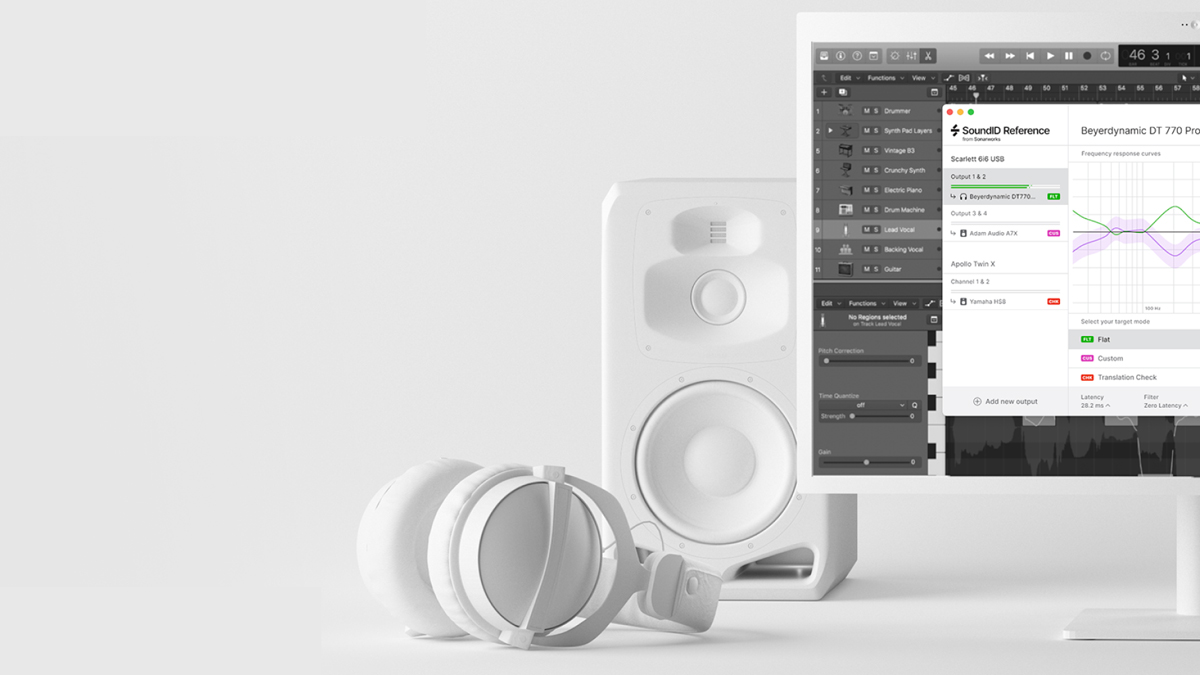Sonarworks SoundID Reference calibrates your speakers or headphones so that you can create better mixes
Updated software can also simulate multiple listening environments

Want all the hottest music and gear news, reviews, deals, features and more, direct to your inbox? Sign up here.
You are now subscribed
Your newsletter sign-up was successful
Although it’s no substitute for a high-quality monitoring setup, Sonarworks’ Reference has always been a good option for anyone who wants to get a more reliable reference sound that will enable them to create better mixes.
It works by calibrating your speakers or headphones to provide a more neutral frequency response, and now we have a new version, SoundID Reference, that brings with it a variety of fresh features and enhancements.
First up, we have Custom Target, a long-requested feature that enables the user to make custom adjustments to the reference target curve in real-time. This is done visually; you can create bell and shelf filters and adjust their Q value to boost or cut specific frequencies.
Custom EQ presets can then be saved for future use, and you also have the option to manually select the frequency range that the calibration will be applied to.
Next, we have Translation Check, which is designed to simulate the sound of more than 20 different listening environments. This means that you can check your mix in multiple virtual places without ever leaving your studio, saving you time and effort.
Other new features include two new systemwide driver modes for Windows and an updated interface that promises to improve the user experience.
SoundID Reference is launching today with an online event featuring walkthroughs, masterclasses and discussions with Grammy-winning producers. You can also download a 21-day free trial version.
Want all the hottest music and gear news, reviews, deals, features and more, direct to your inbox? Sign up here.
Find out more on the Sonarworks website. SoundID Reference comes in two versions: one for headphones ($99) and another that calibrates both speakers and headphones ($249). You can also buy it in a bundle with the measurement microphone ($299). The software runs on PC and Mac.



I’m the Deputy Editor of MusicRadar, having worked on the site since its launch in 2007. I previously spent eight years working on our sister magazine, Computer Music. I’ve been playing the piano, gigging in bands and failing to finish tracks at home for more than 30 years, 24 of which I’ve also spent writing about music and the ever-changing technology used to make it.